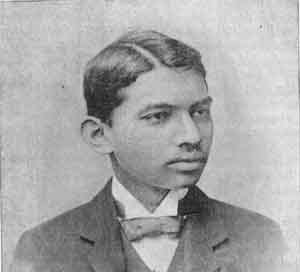Gandhi spent two decades of his life in South Africa, and developed many of the habits and techniques that he would later use in the struggle for Indian independence. Last year I made a series of posts about his experiences in his first few weeks there and how they shaped him, which I’ll once again be sharing in “real time.” Our story starts on April 24, 1893, when a young Gandhi set sail for Africa.
It wasn’t his first voyage to another continent. In 1888, at the age of 18, Gandhi had sailed to London from his native India, anxious to begin his studies of the law. His autobiography, the main source of information about his early life, makes no mention of racial discrimination during his years there. His time in South Africa, however, would be a dramatically different story.
After graduation, he returned to India to start a legal career, only to discover that his formal schooling was not the boon that his family had expected. It took years to establish a reputation in Mumbai’s competitive marketplace, and Gandhi’s ethical objections to the system of bribes that greased the system hindered him from making any real progress.
The year 1893 brought a different opportunity. Dada Abdulla, a wealthy Muslim trader in South Africa, contacted Gandhi’s older brother, Laxmidas, seeking outside counsel for a complicated lawsuit. Formally trained in London and fluent in both English and Gujarati (the native language of Gujarat), Gandhi was uniquely qualified. Accepting the offer of £105 (about $19,000 in today’s dollars) and all expenses paid, he said goodbye to his wife and two young sons, consoling her with the thought, “We are bound to meet again in a year.”
The specter of racism first appeared when he tried to buy a first-class ticket on the ship to Africa. Gandhi was told that only deck passage was available for him, which he found suspicious. He set off to find the captain and learned the real reason: a large party of VIPs had bought up all the first-class compartments. Gandhi’s persistence appealed to the captain, who offered him the berth in his own cabin that was usually reserved for crew members. Gandhi accepted, and they set off April 24.
I appreciate Gandhi’s time in South Africa because of all the self-improvement he did there. (I’d love to write a movie script for his years there, which would be chock full of character development. But it’s pretty far down on my list of projects.) These formative years as a young man can be an inspiration to us all; we can always strive to be better.
Gandhi’s adventure began with the acceptance of a job offer. Have you ever made a large sacrifice in order to take advantage of an opportunity?



